How To Treat Psoriatic Arthritis Naturally (In 9 Steps)

Are you struggling with psoriatic arthritis? Then you probably experienced the nasty side effects of classic drugs.
But there’s another alternative – the natural way.
So let me show you how to treat psoriatic arthritis naturally, in 9 major steps.
Obviously – these tips won’t cure your arthritis completely, because that’s basically impossible. But if you use them on the long term, there are 80% chances that they help.
So I think it’s worth trying – at least checking them out.
Note: While you follow these 9 steps, don’t give up your prescribed medication (if there’s any). These are all some alternative treatments that I tried – so they don’t replace real drugs.
Step #1 – Sit In The Sun
Did you know that heat and sun rays can improve psoriatic lesions?
 And obviously – then can also help the joint lesions. Here’s the thing:
And obviously – then can also help the joint lesions. Here’s the thing:
- people with PsA tend to have a deficiency in vitamin D
- sun exposure increases its level
- that’s because our body needs sunlight to produce vitamin D
Now – scientists believe that a low level of this vitamin could increase the joint pain from PsA. Many patients complained of that – so it’s more of an experience-based conclusion.
Because studies didn’t manage to prove there’s a link – yet.
But one thing is clear – a normal level of vitamin D will surely not hurt your PsA. In fact, it could even improve it considerably.
Obviously, you could take this vitamin out of supplements. But instead of taking several thick pills daily – I recommend you the natural approach:
- Stay outside at least 20 minutes per day
- Consume lots of fish (at least every 3 days)
- Drink citrus juice and milk
Step #2 – Anti-Inflammatory Diet
Just like osteoarthritis – PsA also improves with the right diet.
So what exactly does this “right diet” consist of? It’s simple – 2 major things:
- Less processed foods
- More natural foods
Your probably didn’t even expect anything else, did you?
But out of these natural foods – there are some that can bring more benefits. They’re actually the foods that can reduce the swelling of your joints:
- celery and green vegetables
- beetroots, cherries and citrus fruits
- honey
- fish and fresh (unprocessed) meat
Now – the foods make the (probably) best diet for psoriatic arthritis: the anti-inflammatory one.
Even though there are several diets that can help, this one remains the top one – in terms of results.
So all you have to do is to start eating more of these foods and give up processed ones (as much as you can).
That will surely have a positive impact on your arthritis – but it’s going to take a couple of months.

Step #3 – Turmeric Supplement
That’s a life-changing step – because turmeric can make miracles for your joints.
Here’s why I recommend this herb:
- the strongest natural anti-inflammatory
- reduces joint swelling within days
- also decreases the pain
So if there’s a must-use remedy for psoriatic arthritis and inflammation – it’s surely turmeric.
However, I strongly advise you to take is as a supplement – instead of fresh powder. Here’s why I recommend the pills:
- Contain turmeric extract – which is much more powerful
- Have a better absorption (because of bioperine)
- Higher doses overall
- A lot more comfortable
So if you want to get all the benefits of turmeric, I would definitely recommend you the supplements.
However – not all of them contain the right thing. So if you want to spend your money wisely, here’s my best of list for 2019.
If you choose the right product, you could start to feel an improvement withing days (depending on your condition). But in the worst case, the results should appear in about 1 month.
Step #4 – Epsom Salt Baths
If you never heard of Epsom Salt, you should definitely give it a try.
You can find it in most shops for less than $10 – and its benefits for psoriatic arthritis are real:
- the magnesium inside can soothe painful lesions
- minerals reduce joint pain
- hot water decreases your joints’ stiffness
So it’s pretty easy – get a bag of Epsom Salt, add it in your warm water tub and enjoy.
It won’t only improve your joints – but it will also relieve your stress and help you relax.
You can also add some essential oils, to make the most of their healing power. Here are the top oils for joint pain:
- CBD oil
- Lavender/ Mint oil
- Frankincense oil
- Peppermint oil
You will feel like a new person once you finish your bath – I can guarantee for that. The only problem is that it’s not going to last for long – but that’s why we have 8 other steps.
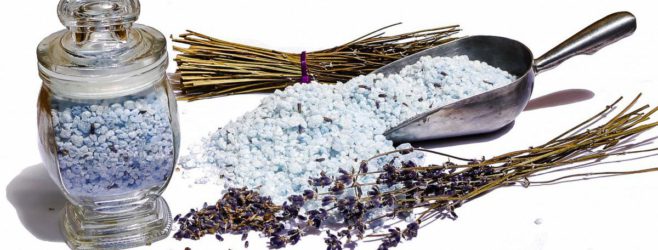
Step #5 – Vitamin K
This is a tip you probably didn’t hear somewhere else – but it’s based on my experience.
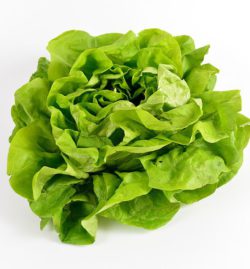 So here’s the thing:
So here’s the thing:
- vitamin K can reduce inflammatory cells
- it also reduces associated pain
- it strengthens the bones
Now – studies didn’t prove that vitamin K is an anti-inflammatory. That’s because it’s not a major one – it’s not as strong as Turmeric, Boswellia or NSAIDs.
But among its numerous benefits – it seems to keep inflammatory cells under control.
So where can you find this vitamin? There’s no point taking it from supplements – since it exists in so many products:
- leafy vegetables like spinach and broccoli
- olive oil
- dairy products (which are not that bad for arthritis – from my experience)
So what you have to do next?
Simply add green vegetables to your diet (if you haven’t done that in step #2), replace your regular oil with olive oil and consume organic milk at least 2 times per week.
Step #6 – Apple Cider Vinegar
If you never heard of this remedy, you should really give it a try.
It seems to be really effective in auto-immune forms of arthritis – but not only. Here’s what it can do:
- decreases joint swelling
- reduces the pain
- dissolves uric acid crystals from gout
Now – just like with vitamin K and D, studies didn’t manage to prove its effectiveness.
But I’ve tried apple cider vinegar myself – and I can tell that it works. It’s not the best remedy ever – but if you combine it with these 8 other steps, it can really help a lot.
And if you were wondering – you can find it in 2 forms:
- Drink
- Pills
Now – I would normally choose the first one, but the pills have several extra advantages:
- much better doses (more concentrated)
- don’t taste bad – as the drink does, in my opinion
- in my case, they worked much better overall
But obviously, it’s up to you. This step doesn’t have a major importance (like #3) – so I won’t insist that you use the supplement.
I personally prefer that option, but if you like the drink better – you can choose which one you want. Just make sure you choose one.

Step #7 – Cut Off Daily Stress
This may sound like a cheap tip, but it’s actually essential.
Did you know that all auto-immune conditions can worsen a lot because of stress? This includes psoriasis, RA and PsA too.
The thing is – you could be stress without realizing it. So here’s how you could reduce that stress:
- Sleep at least 6-7 hours per night
- If necessary, try to take a 1 hour nap in the afternoon
- Spend at least 15 minutes per day outside (fresh air makes wonders)
- Practice yoga or take a small walk daily
- Talk to a family member, a friend or a neighbor
- If you live alone, get a pet
- Take up an easy hobby or any activity that would keep your mind busy
- Try to take your mind off the pain
These are just some examples that I personally use – but you can try something else too.
Simply try not to work all day long or worry about the pain. Believe me, even if it seems weird – it will help.
Step #8 – Use Heat
Psoriatic arthritis doesn’t mean just pain and lesions – it also means stiff joints, especially in the morning.
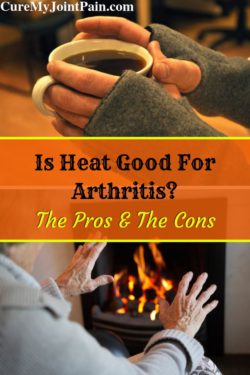 And that’s where heat comes in. So here’s the thing:
And that’s where heat comes in. So here’s the thing:
- get a heating pad or heat up a bottle of water
- keep it close to your bed at night
- make sure it’s hot (or warm) when you wake up
- apply it on the stiff parts of your body for a few minutes
In a normal day, your morning stiffness can last for over an hour. Well, using this tip – it should go away in half of that time (depending from person to person).
This is a hack that I personally use and it’s been helping me a lot recently. Just remember:
- ice is good for pain and inflammation
- heat is good for stiffness
You can also use this heat tip throughout the day. A lot of people I know have joint stiffness after sitting or laying down – so heat helps once again.
Step #9 – Repair Your Gut
Believe it or not – some people say that the cause behind auto-immune problems is a leaky gut. What exactly is that?:
- the good bacteria from your intestines
Now, I personally don’t agree with that – since there are real factors behind each condition, including PsA.
But a healthy gut can surely improve your condition – I cannot deny it. So how can you repair your unhealthy gut?
Don’t worry, I will not recommend you any miraculous supplement – I don’t really trust products designed for gut. Instead, I prefer the natural way:
- Consume organic yoghurt and dairy products
- Eat more fresh foods and vegetables (that’s actually step #2)
- Don’t exaggerate with antibiotics
- Give up alcohol completely (if it’s the case)
Now – this step alone won’t make miracles for your psoriatic arthritis. That’s why I don’t personally recommend it alone.
But if you combine it with the steps above, the results should start to appear shortly.
My Verdict – Can You Treat PsA Naturally?
Short answer: Definitely – in fact, you should see a change after about 1 month of following these 9 steps.
But there’s one thing you must do – follow all of them, without giving up any.
Some may not seem so essential to you – but it’s actually their combination that helps so much.
And one more thing:
- don’t give up the treatment from your doctor
- take it as usual, while following these 9 steps
Everyone is different – so what worked for me may not work for you.
For this reason, following these 9 steps correctly is not a guarantee that your PsA symptoms will improve. It also depends of your body and of your own condition.
But in the worst case, you will feel no change. So these 9 steps can’t possibly worsen your condition.
Actually, there are 80% chances that you feel at least a bit better. So I think it’s worth trying.


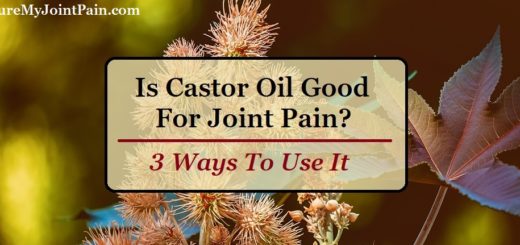


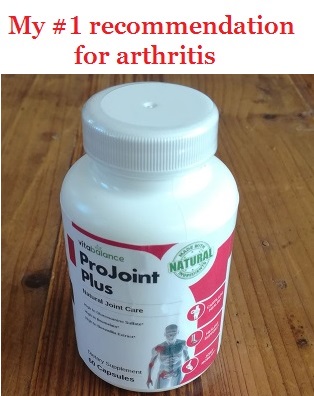
This is the first treatment for psoriatic arthritis I have come across today that actually takes the time to list each solution in layman’s terms – thank you so much for this.
with regards to sitting in the sun as a possible aid, how long do you have to be exposed before you see some good results?
Hi Chris, it’s great to hear it’s detailed enough.
Regarding your question – sitting in the sun alone won’t cure your psoriatic lesions. But it depends a lot of how severe they are.
I happen to know some people with psoriasis (minor forms) that get better after going to the beach or pool. Some thought it’s because of water – but it’s actually because of being exposed to sun rays.
The thing is that sun dries out psoriatic lesions – that’s why they can get better, if they’re not very severe.
But sitting in the sun alone won’t do anything for your joints – just for your lesions. Unless you have a low level of vitamin D (but that’s rarely the case).
So if you really want an answer – I would say that you should see some results within a week. But once again, it depends of how severe are your lesions.
If it doesn’t seem to help – you can also take vitamin D supplements. But it’s better to see a doctor before and have a blood test, just to make sure you really have a deficiency.
Sorry I can’t help more.
Hi and thank you for all this valuable advice you have given. Psoriatic Arthritis has been something affecting my aging mother for the past few years now with so many money spent. I will have her try this, I will prepare her a hot bath with Epsom salts tonight actually (we have some bath salts but she didn’t really use them). I will also have her take turmeric because I heard so many good things about it from other people not just you.
Thanks again!
Hey Solomon, these tips should decrease the intensity of your mom’s symptoms.
I don’t know how severe is her form of psoriatic arthritis (because this also matters), but she should feel much better normally. Tell her not to expect to see a change in a week, because it depends a lot from person to person.
But she should get better in about 1 month if she follows most of these tips.
Please keep in touch with me about her condition and how it goes.
Hi Heather,
It is a wonderful compilation of natural remedies for Psoriatic Arthritis. Many older people within my family and relatives are suffering from this awful pain along with many in the world.
I personally like your turmeric regimen. I am brought up in a family with turmeric being used every day to cure multiple disorders. We grow our own organic turmeric in our back yard and preserve it for a year. The leaves are useful as well. We bake the cake using the leaves as cover.
I agree with you, about turmeric powder. But one can grow turmeric which is equivalent to Turmeric Plus by shifting the way of cultivation. What you typically do is burn the dry turmeric leaves and use the ash as the manure. The turmeric coming out of it carries more Curcumin which is the active ingredient.
As the members grow old, turmeric tea in the morning is usually the 1st thing they take in the morning. We add mashed ginger to make it more effective for joint pain.
Natural remedies might not cure you 100% as you have mentioned but definitely sooth your inflammation to a tolerable and improved level.
Hi Anusuya, you really seem to have a lot of experience with organic turmeric. I don’t know if someone from your family has psoriatic arthritis or not, but that regimen would have surely helped.
I had no idea you can get turmeric with more curcumin naturally. I knew you can grow it in your own backyard but I definitely didn’t know you can make it more concentrated.
However, I don’t think this is an option here, in the US. You didn’t mention where you’re from but I know turmeric grows in India and that’s where people grow it themselves. I doubt it would grow here, even if I planted it in my own backyard and took great care of it.
For me it’s a lot more comfortable to buy the supplement, because some are really cheap.
But thanks a lot for pointing out all these details I had no idea about.
I agree with you, these remedies won’t cure psoriatic arthritis completely. But they can really improve it considerably.
Hi Heather,
Thanks for all these excellent tips about the treatment of Psoriatic Arthritis naturally. Though I have no problem on this but my father is suffering badly from this disease. I was looking for natural remedies for him, because the meds his doctor prescribed don’t have the results we hoped for.
I will have my father follow all of your step by step guideline, he has nothing to lose. I like that all your steps are really affordable for regular peeps like us, we don’t afford paying much money on miracle drugs or special clinical treatments. Thanks again, I will tell you how it goes for my father.
Hi John, these steps put together should help your father.
I don’t know how severe is his form of psoriatic arthritis – so that’s what the progress depends of. I mean, if he has a serious form, he might need to follow this steps for longer before he sees a big improvement.
But either way, this natural treatment should help him even a bit.
I’m waiting for your feedback.
Hi, Arthritis can also be improved in my country using Acupuncture. I don’t know about psoriatic arthritis alone, but I know it helps joint pain and arthritis in general.
Acupuncture is an alternative medicine based on pseudoscience, and a key component in traditional Chinese medicine which involves inserting of very tiny needles into the skin at a particular dept and specific points on the body. I’ve read and heard testimonies about it and how it works.
I must admit I find it insightful to read your articles. Thanks for all the good work.
Hi Ayodeji, thanks for letting me know your experience.
I personally don’t have such a great opinion on acupuncture – here in the US it’s not such a common treatment. But I know enough people using it.
Now – acupuncture can help arthritis, but I know it has some mixed results. I never had such a great relief from it, as you mentioned. And I know some others who didn’t. On the other hand, certain people love it and it has great effects on their joints.
I’m also pretty scared of the procedure from hygienic reasons. I know it might sound silly, but I think you have to find a very professional practitioner and to be sure that the needles are cleaned up and hygienic.
I’m using this as an excuse a lot of times – but as I said, acupuncture didn’t relieve my pain too well alone.
So I consider it a useful procedure, but not a must. It might help psoriatic arthritis, but it depends a lot from person to person.
Thanks again for letting me know how things go in your country.
This is an awesome site–thank you so much for all the information. My mom struggles with arthritis and I have a feeling I’m down the same path. These really are amazing suggestions that anyone can take advantage of at home, and I really appreciate it. I’m sure there is the added benefit of these things helping with more than just arthritis, too! They look like awesome self-care strategies for everyone. Thanks for this clear and easy to understand article.
Hi Holly, thanks for your words, it’s great to hear you found helpful info here.
You and your mom should definitely follow these measures both. As you said, they’re also great for general health. Plus they can help you delay your arthritis as much as possible (in case it’s genetic).
I use the keto lifestyle to combat inflammation from psoriatic arthritis and its astounding how well it works.
Epsom salts are a great way to relax and take in the benefits from it, and CBD is the new up and coming medication of the future I think.
I drink apple cider vinegar in my water daily or whenever I get heart burn, I like braggs the best, which do you use?
For me its sometimes hard to cut of the stresses of every day life but there are many ways to lessen the load.
Thank you for sharing these tips, your site is very well put together.
Hi Amanda, thanks for your words.
I’ve heard about the Keto lifestyle and diet but I never tried it myself. I know you can eat lots of meat and oils, which I’m not a big fan of.
So I’m quite surprised it helps you control inflammation. Normally, I would expect the opposite.
I heard about Paleo diet being good for arthritis, but I wasn’t too impressed after all.
Anyway – there are some other diets that also help psoriatic arthritis.
Regarding ACV – I don’t really have a favorite brand, because I rarely consume it as a drink. It’s just because I don’t like its taste. I used to take it as supplements for a while, but at this point I quit them because I was taking too many pills daily. So I just kept the useful ones.
Thanks for reading my article.
I do not have Psoriatic Arthritis, but I have used many of these natural techniques for other aches and pains. However, there were some that I hadn’t heard of before including the tumeric supplement and Vitamin K. I have long used heat and epsom salts for treatment (epsom salt baths rock!).
I know that some diets like the Keto or Paleo can be hard to follow so how restricting do you find the anti-inflammatory diet to be?
Hey Steve. To be honest, no diet can make wonders alone – whether it’s for psoriatic arthritis or any other problem. But if you associate with the right supplement or drug, it can definitely help.
In my opinion, the anti-inflammatory diet is pretty easy to follow. It doesn’t require you to eat just raw foods (like Paleo diet does) or to consume just proteins. These would be impossible diets for me personally.
But with this anti-inflammatory diet, you simply have to give up processed food.
Basically, you can eat any meat as long as it’s organic or at least if you cook it at home. You can also eat cakes, but try to make them yourself using honey instead of sugar (which is more inflammatory).
And not to mention that you should eat as many fresh foods as you can – vegetables, fruits, white grains.
If you like fruits and natural stuff – it shouldn’t be very hard. But if you don’t – it’s never too late to get used to them.
Hello heather and thank you for the tips. I have a form of psoriasis which turned into psoriatic arthritis 3 years ago, and I’m trying to find a cure since then. to tell you honestly, most of the steps you mentioned are new to me, so they really gave me new hopes.
i will surely try turmeric, it seems like a miracle plant for inflammation, which is really a problem for me. i work in an office so i’m most part of my time inside, except the dates when i’m on vacation, but it only happens once in a year. could you recommend me any vitamin d supplement? i don’t think the time i spend outside is enough for my psoriasis to dry off.
Hi Mitch, I really advise you to give these 9 steps a try. I tried to gather here all the useful things I learned about arthritis throughout the years. And even if I don’t have this form of arthritis, I have a similar one (RA).
Regarding your question – I kind of try to avoid vitamin supplements. If there’s no clear deficiency, vitamins rarely help.
Now, vitamin D is indeed linked with psoriasis and arthritis. That’s why I advise you to have a blood test first and see what’s your level. If it’s normal, there’s no need to take a supplement. If you can stay outside, it’s fine – but if you can’t, it’s still fine (as long as your level is normal).
But if you really have your deficiency, ask your doctor to prescribe you the right drug/supplement. You might have a deficiency in other minerals or vitamins too, so why take 2 or 3 supplements when you can take all those nutrients into 1? Do you get my point?
So instead of just taking vitamin D pills randomly, go have a blood test and see the level you have.
Other than that, try to follow these 9 steps and your psoriasis and psoriatic arthritis should get better.
Let me know how it goes.
Thank you, Heather, for all the information you have provided in this article.
I am suffering from joint arthritis for over 2 years but also might have developed rheumatoid arthritis in my hands, which the end diagnosis still in waiting. I have refused before taking heavy pharmaceuticals, but my Doctor wants to insist, this time, to rather prescribe, urging me to go with it this time.
I am still not convinced that there isn’t anything else I can do to reduce the swelling as well the pain. I am glad I have found your site and your honest review of all these alternative treatments.
I took up Yoga many years ago and just started, again, a few months ago. For me, it seems to help to gain more range of motion, although, it doesn’t reduce the pain for a longer period of time.
The interesting part is, that I have heard a lot about Tumeric but I personally thought it might be not very helpful for me like, the Omega 3 I had tried for a long time, however, I will give it a shot. What can I lose, only the pain, right?
Thanks for sharing the information, appreciated.
Sylvia
Hello Sylvia.
I’m not sure what exact medicines your doctor recommended – but if you refuse to take them, it’s your choice. You have every right to do that, and you’re not the only one.
I followed the classic treatment for RA for a long time and had good results – but the side effects were killing me. So that’s why I decided to look into the herbal/natural side.
But even after starting different supplements, I still took my prescribed drugs for a long time. I just didn’t want to count only on the supplements. In case they weren’t effective, my condition would worsen. And I think I made the right choice, considering that 75% of the products I tried weren’t very effective.
Anyway – so basically you’re not sure you have RA, but you might.
Well, my first recommendation would be to start using turmeric – but it’s up to you how:
1. If you’re fine with taking supplements, I really advise you to. Turmeric is the best natural anti-inflammatory I know, so it might even keep your inflammation under control. These are my top recommended turmeric supplements.
2. In case you don’t want a supplement, you can use raw turmeric in several ways. I personally don’t recommend that because turmeric has a bad absorption (more than 50% is eliminated without any effect). So supplements use bioperine to increase its absorption. Bioperine is dangerous if taken alone, because you need very low doses. That’s why you can’t really get the right dose yourself.
I kind of agree with you on Omega 3 and fish oil – I consider them a bit overrated for arthritis and inflammatory pain. I never had great results with any. They did help – but far from turmeric or Boswellia.
Regarding Yoga – I see it more of a leisure and relaxing activity, something that takes your mind off from the pain. But it never helped me in terms of pain, like decreasing or reducing it. Maybe it helped just with flexibility, but that was all.
You can also keep a close eye on what you’re eating – some foods are really bad for RA, especially candies and sugars. You can follow a specific diet for a few weeks and see what happens – maybe your symptoms will get better.
Another tip is to try to stay hydrated and drink a lot of water. Dehydration can cause joint pain, even if it’s just temporary. Alcohol and coffee and also worsen an existing pain (but none of them cause arthritis alone).
Going gluten-free for 1-2 weeks would also help you see if you have any small gluten allergy (that could be worsening your existing pain).
These are some tips that might help. Also, I have some practical tips for joint pain (I call them hacks) – so they might come in handy as well, at some point.
Sylvia, in case you need any other advice or questions, please let me know.